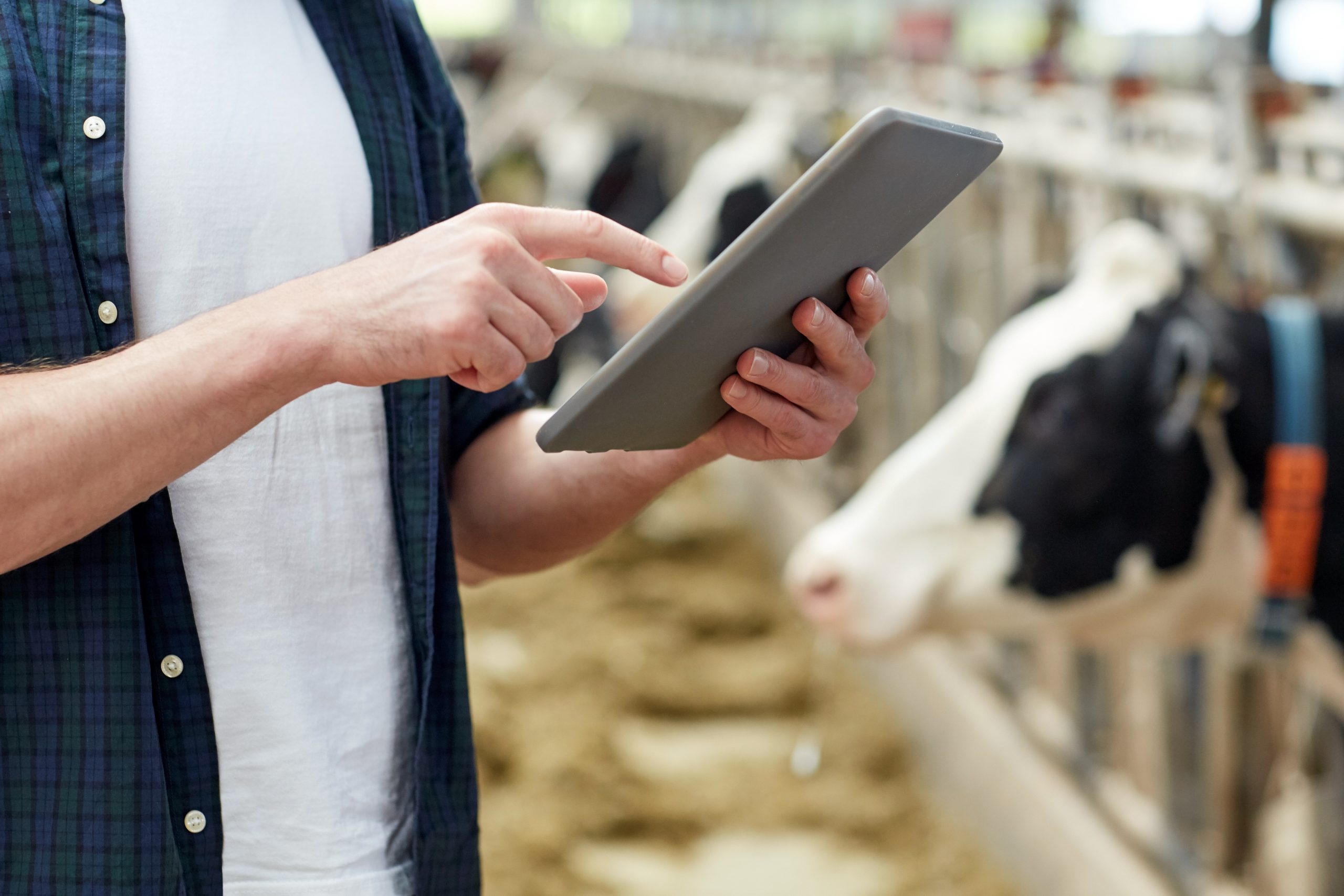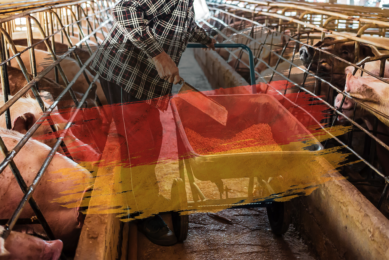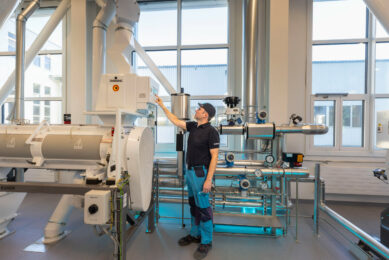Friday Feed Update: New products and developments

All About Feed wraps up the latest feed business developments from around the world.
Maize genetics award for US researcher
James Schnable, an assistant professor in the Department of Agronomy and Horticulture and Center for Plant Science Innovation at the University of Nebraska – Lincoln, received the Marcus Rhoades Early Career Award in maize genetics at the 60th annual Maize Genetics Conference held in France on March 24. Schnable was honored for his work delineating the functionality district subgenomes of maize and separate patterns of selection across during the domestication of maize, sorghum and foxtail millet.
Pannonia Gold awarded VLOG certification
Pannonia Gold, a protein animal feed ingredient, has been awarded the highest level of GMO free quality certification in Europe, the “Ohne GenTechnik” seal, from a top German certification body, VLOG. Pannonia Gold is a dried distillers grain (DDGS) mid protein feed available in countries throughout Europe and beyond and produced at the Pannonia Ethanol biorefinery in Hungary. VLOG has certified Pannonia Gold as GMO free based on audits and physical inspections conducted at the biorefinery. The “Ohne GenTechnik” seal guarantees retail chain buyers that the products they are purchasing are GMO free. While the certification is predominently for the German market, it is widely recognised for its quality assurance.
Hamlet Protein introduces Feed Academy
Hamlet Protein, prodcuer of soy ingredients for animal feed, has introduced the Feed Academy. The company runs more than 1,000 analyses a year to map the nutritional content of commercial soy products. Along with findings from international studies and feeding trials, the data gives a good overview of what each product can do. Hamlet Protein has collected all that knowledge in the Feed Academy, a video and article series about soy’s nutritional potential in all its forms and what works best for high-performing young animals. The Feed Academy is a new part of the Feed Your Brain section of the company’s website.
Successful Victam Asia 2018
Victam Asia 2018 attraced 228 exhibitors and co-exhibitors from 33 countries. The show attracted 6,987 visitors from 67 countries. The exhibition and series of accompanying conferences were held at the Bangkok International Trade and Exhibition Centre (BITEC) from March 27 – 29, 2018. According to the the organisers of Victam Asia, the visitors were pleased at the number of exhibitors, the wide range of products on display, especially the newly launched products and also the high quality of the exhibition stands. Likewise, the exhibitors were very satisfied with the visitors. Exhibitors were able to have serious discussions and negotiations with their clients and new potential clients that they had met at the show. The exhibitors also commented on the very high quality of the visitors and the wide range of countries from which they came.
The next event organised by Victam International BV is Victam International 2019 from June 12 – 14, 2019 in Cologne, Germany. The next Victam Asia event will be from 24 – 26 March 2020.
New B2B online exchange for additives and APIs
Established in Switzerland in 2017, Kemiex aims to substantially improve the way additives, active pharmaceutical ingredients (APIs) and excipients are traded in the industries of food, feed, pharma and vet. The company has teamed up with Atradius, a global leader in trade credit insurance, to introduce a holistic and neutral commodity exchange, made for traders, buyers and sellers that meet predefined quality assurance and financial due diligence criteria. The Kemiex platform instantly connects users to a global network of qualified counterparties, enabling them to minimise transaction lead times, achieve more competitive prices and to stay in full control of the whole trading activity. The platform is accessible 24/7 and covers the full trade process such as quoting a product request, private negotiations, trade execution, document management and other value-add services such as reporting and pricing intelligence. The platform is now open for registration and trading will be officially launched later this year.
BASF and arc-net collaborate on blockchain technology
BASF Corporation and arc-net, are collaborating to use blockchain technology to capture and analyse sustainability parameters in livestock production along the value chain. Arc-net is a technology company utilising blockchain technology to provide transparency in the agrifood industry. As part of this collaboration, BASF will use its tailored calculation tool, AgBalanceTM Livestock to provide science-based information on environmental impacts along the animal production value chain. The preliminary phase of the pilot project will focus on collecting data for evaluating sustainability measures within a controlled setting at the farm level. In parallel, automated farm-level data capture and environmental output calculation will be combined via blockchain technology. This information will provide environmental footprint along with full transparency and traceability along the entire value chain. In the future, this project will enable consumers to make informed choices about the meat they eat via an on-pack unique scannable code, providing information on the product’s provenance and environmental footprint.
Groupe Roullier teams up with Wageningen University
At the beginning of March, Groupe Roullier entered into a new scientific partnership with the University of Wageningen (Netherlands). An initial partnership between the 2 organisations was already set up a few years ago to focus on poultry farming. This new collaboration will cover all species, including ruminants, pork and poultry. Its main research priorities will involve enhancing feed portions and animal well-being.
Novus International forum to dicusss pig challenges
The 2nd Iberoamerican Swine Nutrition Roundtable, hosted by Novus International, Inc., brought together swine experts from Europe and Latin America to discuss the various challenges facing swine nutrition, specifically feeding sows for more productive offspring (epigenetics) and alternatives to antibiotic use. Held April 4-6 in Sitges, Spain, more than 50 swine professionals participated including swine nutritionists, academics and researchers from various segments of animal nutrition. At this forum, selected swine experts shared information regarding their respective regions (representing countries from Colombia to France), as well as the global swine industry. This year, the 3 day event encouraged even more open, in-depth discussion of ideas brought up by each presentation. These discussions focused on nutrition as a tool to improve progeny and overcome the challenges of hyperprolific sows and early piglet development as well as best practices for managing health in a changing global market (regulatory changes, consumer preference changes, etc.). The Iberoamerican Swine Nutrition Roundtable is just one of many Novus Forums that bring together a multitude of viewpoints across the livestock, aquaculture and poultry industry for productive collaboration.
Thai opinion on meat raised with phytogenics
A recent survey commissioned by Delacon revealed Thai consumers are ready to buy meat products raised with phytogenic feed additives. “The survey shows that millennials in Thailand are interested in knowing how their food is produced. The story of phytogenics, or plant-derived ingredients fed to chickens and pigs, would be very attractive for them to consider in their purchasing decision for meat products,” says Preecha Sapkitjakarn, Delacon Country Sales Manager in Thailand. Phytogenic feed additives are standardised mixtures of herbs, spices, other plants, and their extracts with proven efficacy. To consumers, one could more visually talk about natural ingredients such as cinnamon, thyme, or cayenne pepper. Phytogenics are used for their impact on animal wellness, gut health, and greenhouse gas emissions. The survey also looked at product labelling concepts to see which phytogenic claims would be most important to Thai millennials. Overwhelmingly, the strongest claim for a brand of chicken or pork meat was “fed a diet that includes phytogenic ingredients which leave no harmful residue.”











